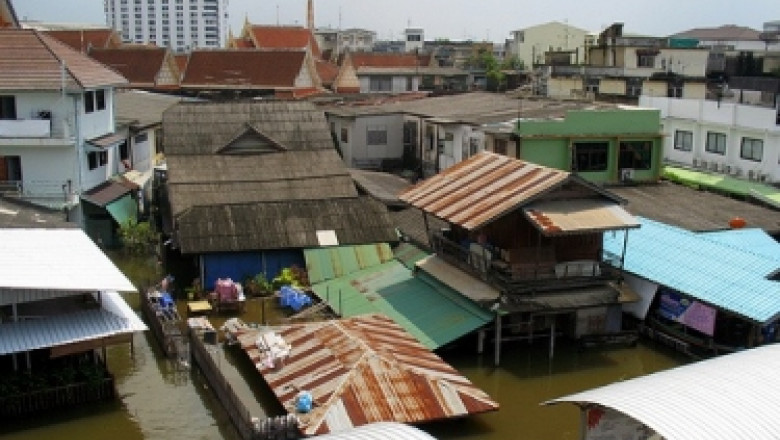If a new PC or hard drive is on your holiday wish list, you may be in for a rude surprise: supplies are running low and prices have skyrocketed, all because of an extreme weather event that took place halfway around the world.
One wouldn’t normally think of the weather as a key factor governing supplies of electronic equipment. This isn’t cotton or rice that we’re talking about; it’s high-tech equipment that’s manufactured indoors, in climate-controlled facilities. Nevertheless, even typically non-weather sensitive businesses can become victims of extreme events like heavy rainfall, which is becoming more frequent and intense due to global warming.
During the fall, massive flooding in Thailand inundated the factories of some of the world’s leading hard-drive manufacturers, such as Western Digital. According to the Wall Street Journal, 40 percent of all hard drives on the market are built in Thailand. And as the Global Post reports today, many of the factories are situated in the same industrial zone that sits in a floodplain north of Bangkok. "The pungent waters, which shut down more than 800 factories employing roughly 450,000 workers, are now struggling to repair or replace equipment left soaking for weeks,” the Post reports, quoting the CEO of Hana Electronics as saying:
“Frankly speaking, we’ve realized with hindsight that we’re in the wrong place... We’re in a flood zone."
The flooding, which forced the evacuation of large parts of densely populated Bangkok, did so much damage to some PC equipment makers that they are considering moving their facilities out of Thailand entirely, given that nation’s recent one-two punch of political unrest and record floods. Others are building flood walls to protect their factories.
The supply disruption is causing the price of some hard drives to “skyrocket” by up to 250 percent, trade publication Computerworld found. It’s also costing hard-drive makers and PC manufacturers a lot of money.
Just ask Intel, which recently announced that revenue in the fourth quarter is expected to be $1 billion less than previously anticipated, due to the worldwide shortage of computer hard disk drives. As the New York Times explains, “With fewer hard drives available, the makers of personal computers and computer servers are building fewer computers and thus need fewer semiconductors from Intel.”
The fact that the Thailand floods are now rippling through the PC supply chain — all the way to the items on the shelf at Best Buy — demonstrates that extreme weather and climate events can have unexpected global repercussions. It also shows that it’s not just governments that need to take steps to adapt to a changing climate, but the private sector does, too. Making sure that key elements of their supply chain are not located in vulnerable floodplains would be a good first step.
For another perspective on the flooding in Thailand, read an op-ed by Climate Central's Michael Lemonick, published in the LA Times.

